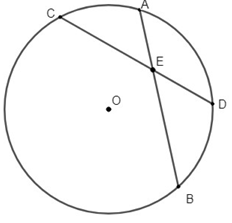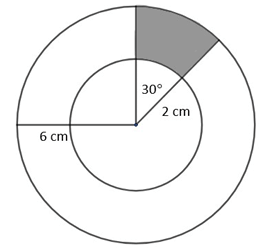NC MATH 3 PRACTICE QUESTIONS
Subscribe to our ▶️ YouTube channel 🔴 for the latest videos, updates, and tips.
Subscribe to our ▶️ YouTube channel 🔴 for the latest videos, updates, and tips.
Write the inverse for each equation and find the following.
i) Check whether the inverse is a function or not.
ii) Find domain and range.
Problem 1 :
y = -(3/5)x - 12
Solution :
To find inverse of any function, we have to follow the steps given below.
Step 1 :
y = -(3/5)x - 12
Solving for x
y = -(3/5)x - 12
y + 12 = -(3/5)x
x = (-5/3) (y + 12)
Step 2 :
Change x as f-1(x) and y as x.
f-1(x) = (-5/3) (x + 12)
By applying some random values of x, we get different values of y. Hence inverse function is also a function.
Domain :
Since the given function is linear, all real values are domain.
So, domain is (-∞, ∞).
Range :
(-∞, ∞)
Problem 2 :
y = √x - 5 + 8
Solution :
Finding inverse function.
Step 1 :
y = √x - 5 + 8
Solving for x
y - 8 = √x - 5
(y - 8)2 = x - 5
x = (y - 8)2 + 5
x - 5 = (y - 8)2
y - 8 = √(x - 5)
y = √(x - 5) + 8
Step 2 :
Change x as f-1(x) and y as x.
f-1(x) =√(x - 5) + 8
By applying some random values of x, we get different values of y. Hence inverse function is also a function.
Domain :
Since it is square root function, the value which is inside the radical should be greater than or equal to 0.
(x - 5) ≥ 0
x ≥ 5
Range :
(-∞, ∞)
Problem 3 :
Which of the following expression is having the factor of x - 2.
a) 3x3 + 6x2 - 6x - 36 b) 2x3 + 5x2 - x - 6
c) x4 + 3x3 - 10x2 d) 3x4 + 2x2 - 35x2 - 18x + 72
Solution :
Option a :
3x3 + 6x2 - 6x - 36
Factoring 3, we get
= 3(x3 + 2x2 - 2x - 12)
Using the method of grouping finding factors, we get
= 3x2 ((x + 2) - 2(x + 6))
It is not factorable using the method of grouping. Then option a is not correct.
Option c :
= x4 + 3x3 - 10x2
= x2(x2 + 3x - 10)
= x2(x2 + 5x - 2x - 10)
= x2[x (x + 5) - 2 (x + 5)]
= x2(x - 2) (x + 5)
So, option c is correct.
Problem 4 :
Nancy can paint a fence in 3 hours. It takes Ben 4 hours to do the same job. If they were to work together to paint a fence, approximately how many hours should it take?
A. 1.7 B. 2.0 C. 3.2 D. 5.8
Solution :
Time taken by Nancy to complete the work = 3 hours
Time taken by Ben to complete the work = 4 hours
1/3 be the work done by Nancy in 1 hour.
1/4 be the work done by Ben in 1 hour.
= 1/3 + 1/4
= (4 + 3)/12
= 7/12
time taken to complete the work = 12/7
= 1.71
So, option a is correct.
Problem 5 :
In the diagram below of circle O, chords and intersect at E.

If CE = 10, ED = 6 and AE = 4, what is the length of EB
A. 2.4 B. 6.7 C. 12 D. 15
Solution :
When chords intersect inside the circle, the product of two parts of the chords are equal
CE ⋅ ED = AE ⋅ EB
10 ⋅ 6 = 4 ⋅ EB
EB = 60/4
EB = 15
so, option D is correct.
Problem 6 :
A polynomial equation with real coefficients has roots at x = ±1 and x = 2i. What is the minimum degree of the polynomial equation?
A. 3 B. 4 C. 5 D. 6
Solution :
If the given root is a rational or it is complex number, then its conjugate will be other root.
Hence the roots are x = 1, x = -1, x = 2i and x = -2i. Then, the polynomial which is having the highest exponent is 4.
Problem 7 :
In the figure below, the larger circle has a radius of 6 cm and the smaller circle has a radius of 2 cm.

What is the approximate area of the shaded region?
A. 2.1 cm2 B. 3.4 cm2 C. 4.2 cm2 D. 8.4 cm2
Solution :
Area of shaded portion = area of large sector - area of small sector
= (θ/360) πR2 - (θ/360) πr2
= (θ/360) π(R2 - r2)
= (30/360) x 3.14 (62 - 22)
= (1/12) x 3.14 (36-4)
= (1/12) x 3.14 x 32
= 8.37
Approximately 8.4 cm2. So, option D is correct.
Problem 8 :
Factor the expression.
x3 - 5x2 + 3x - 15
Solution :
= x3 - 5x2 + 3x - 15
Factor x2, we get
= x2 (x - 5) + 3(x - 5)
= (x2 + 3) (x - 5)
So, the factors are (x2 + 3) (x - 5).
Recent Articles
-
Finding Range of Values Inequality Problems
May 21, 24 08:51 PM
Finding Range of Values Inequality Problems -
Solving Two Step Inequality Word Problems
May 21, 24 08:51 AM
Solving Two Step Inequality Word Problems -
Exponential Function Context and Data Modeling
May 20, 24 10:45 PM
Exponential Function Context and Data Modeling